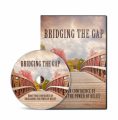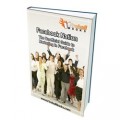 License Type: Master Resell Rights
License Type: Master Resell Rights  File Size: 2,875 KB
File Size: 2,875 KB File Type: ZIP
File Type: ZIP
 SKU: 54429
SKU: 54429  Shipping: Online Download
Shipping: Online Download
Ebook Sample Content Preview:
Take Control
If the future of the three-legged stool seems grim, rest assured that it's going to affect a few more than other people. The reality for all of us is that we will not be able to bet on the federal government and our employers to take care of us in retirement like they're taking care of today's golden agers.
So what can and ought we do? Take charge. If you take charge of your life and begin planning for the future, you'll spend less, save more, and invest the difference with wisdom. That is your solution to retiring young.
The earlier you begin taking charge, the more you'll save and invest and the faster your cash will grow over time—to a level where working becomes optional instead of mandatory.
Additional Points
How do you spend to a lesser extent?
First of all, simplify your life. Most individuals work to support their assets; the more stuff you own the harder you have to work to purchase and maintain those things. Quit trying to keep up with the Joneses and rediscover how the simple things in life—like visiting with acquaintances, reading, walking, and spending select time with your mate and youngsters—can be as enjoyable as your latest high-tech buy.
Choose to live with less so that it doesn't cost so much to live. Pick up a few books at the library on simplifying your life. And while you're there, view the other entertainment available at the library at no cost to you. When you do buy something make sure it is a money making purchase.
Secondly, when you do make purchases, go for less-expensive alternatives in food, apparel, vehicles, and vacations. Find as many free and low-cost activities as you are able to for entertainment. Watch for sales, frequent the clearance racks when apparel shopping, establish spending precedence, don't purchase unnecessary items if you can't afford to pay for them with cash, research buys and comparison shop to get the best value, and capitalize on off-peak discounts for travel/recreation, movies, dining out, and purchasing seasonal items.
How do you save more?
This ought to be pretty obvious after what you just read. Spend to a lesser extent and invest the difference between what you could have spent and what you really spent. Think about bonuses, raises, tax refunds, and gifts as "additional" money and invest them for your future. Capitalize on your employer-sponsored retirement account—like a 401(k)—where the cash is taken directly from your paycheck (before you see it so you don't miss it) and invested in mutual funds or some early asset.
You are able to likewise ask your employer or bank to send a check or direct-deposit money from your payroll check into a non-retirement mutual fund account. This is a "forced-savings" arrangement that may work well for individuals who are less-disciplined in saving and investing on their own.
Over the past seventy-seven years, the stock market has far surpassed the performance of the other two major asset classes—bonds and cash—pulling an average annual return of a little over ten percent. Although there are no future guarantees, based on historical functioning and over long periods of time, those centered on growing net worth will do significantly better in stocks than in bonds or cash. You are able to easily invest via mutual funds to diversify your investments and spread out the risks.
There's no question that the securities market has its ups and downs. But if you wish to grow net worth sufficient for retiring young, and if you plan to invest for the long-run (20 to 30 years or more), there has been no better means in the past of achieving that goal than the securities market or currency trading.
Final Words
Retiring young offers many advantages: freedom to get up each day and do whatever you wish to do, opportunity to quest after hobbies and favored activities that there aren't enough hours in the day or week for now, limitless time to spend with loved ones and acquaintances, and a perpetual vacation rather than 2 or 3 weeks a year.
If that sounds great to you, then it's time to start centering on retiring while you're young, healthy, and motivated to take full advantage of what early retirement has to provide.
Most individuals believe they need to be wealthy to retire young. They don't. Many individuals have retired in their 40s or 50s without being rich; but neither were they poor. The net worth you're going to need will depend upon the lifestyle you wish to live.
And the philosophy is quite easy: if you are able to live on less than most individuals, you are able to likely retire earlier than most individuals. If you wish to retire young, spend less, save more, and invest wisely.
Naturally, those fortunate enough to get a windfall (like an inheritance) or who will get an employer-funded pension, won't need a net worth as high as those not having such benefits. And there's yet another option for those who earn less or haven't managed to save the net worth essential to fully retire. Part-time work during early retirement may still give you far more freedom than you have now while supplying an income stream that may make retiring early possible.
You are able to give yourself the choice—to retire young or to keep working—but only when you plan ahead and build the net worth sufficient to having that option in the future.
You might love your job now, but what about in 10, 15, or even 20 years? Exuberance for your job or career may change dramatically.
And with the number of layoffs we have seen by corporations in preceding years, whether you've a job or not in the future might not be your choice.
So take charge of your life now and prepare yourself for whatever might come. Spend less, save more, and invest wisely. You don't have to work always—if you begin planning today. As a matter of fact, you may even retire young!








